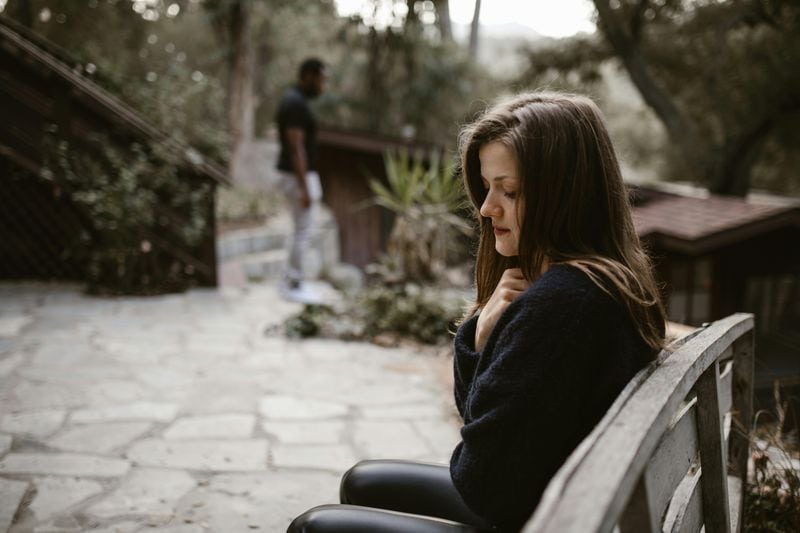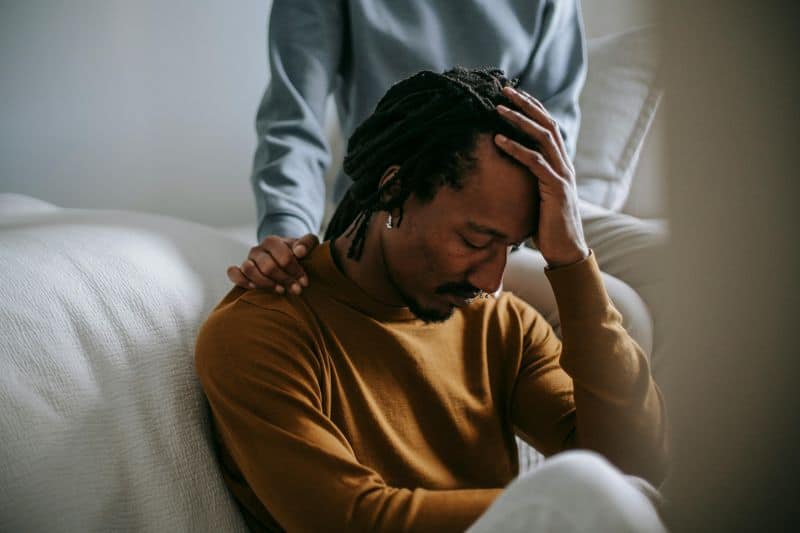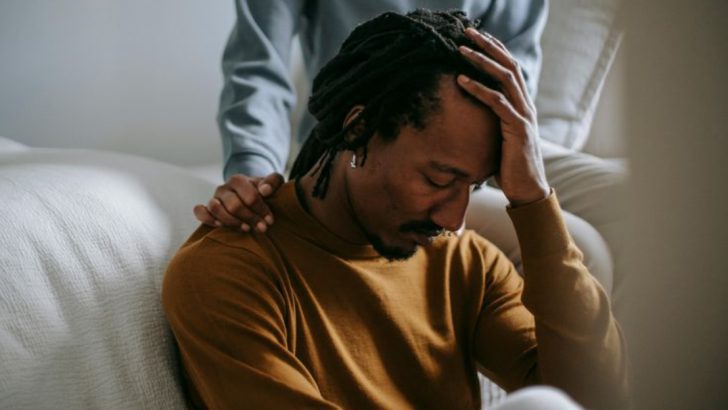Have you ever wondered why someone would stay in a relationship when the spark has clearly faded? It’s a confusing situation that leaves many people feeling hurt and uncertain about where they stand.
Understanding the psychological reasons behind this behavior can help you make sense of what’s happening and decide what’s best for your own happiness.
Sometimes the answer isn’t about you at all, but about deep fears and patterns that keep people stuck even when love has left the building.
Fear of Being Alone

Nobody likes the idea of coming home to an empty house every single day. For many people, the thought of being alone feels scarier than staying in a relationship that doesn’t make them happy anymore. After spending years with someone, they’ve gotten used to having another person around, even if the connection isn’t what it once was.
This fear becomes especially strong at night or during holidays when being single feels more noticeable. Some folks convince themselves that any company is better than no company at all. They’d rather deal with a loveless relationship than face the silence and uncertainty that comes with being on their own.
Comfort and Familiar Routines

Humans are creatures of habit, and breaking routines can feel incredibly uncomfortable. When you’ve shared breakfast with someone for ten years, slept on the same side of the bed, and followed the same weekend patterns, changing all that requires enormous energy. Your brain gets wired to these predictable rhythms, making them feel safe even when the relationship itself has grown cold.
Starting over means finding a new place to live, creating new routines, and adjusting to a completely different lifestyle. That level of change overwhelms many people. So they stay put, choosing the devil they know over the uncertainty of building something new from scratch.
Guilt and Responsibility

Some people carry a heavy sense of responsibility for their partner’s happiness. They worry about how their partner will cope without them, especially if that person depends on them emotionally or financially. Breaking up feels like abandoning someone who needs them, which triggers intense guilt.
This feeling gets stronger if their partner hasn’t done anything particularly wrong. When there’s no clear villain in the story, leaving feels selfish and cruel. They imagine their partner’s sadness and can’t bear the thought of being the cause of that pain.
Many people also feel guilty about wasted time and broken promises, especially if marriage vows were involved.
Social and Family Pressure

What will everyone think? This question haunts many people who consider ending relationships. Family members might have strong opinions about divorce or breakups, especially in communities where staying together is valued above personal happiness. The pressure to maintain appearances and avoid disappointing loved ones can be crushing.
Some folks worry about becoming the subject of gossip or losing friendships that are tied to the relationship. They fear awkward questions at gatherings and the judgment that might follow. Religious communities sometimes add another layer of pressure, making separation feel like a moral failure.
Keeping up the facade seems easier than facing everyone’s reactions.
Financial Dependency

Money makes everything more complicated. When one person relies on the other for housing, health insurance, or daily expenses, leaving becomes a logistical nightmare. The practical reality of affording rent, paying bills, and maintaining a lifestyle on a single income stops many people in their tracks.
This situation hits especially hard for those who’ve been out of the workforce or earn significantly less than their partner. The fear of financial struggle or even poverty feels more real than the emotional pain of staying. They calculate costs in their head and realize that emotional freedom comes with a price tag they can’t afford.
Emotional Dependency

Over time, some people lose their sense of individual identity within a relationship. Their partner becomes their main source of emotional support, validation, and security. Even when love fades, breaking that emotional lifeline feels impossible because they’ve forgotten how to support themselves.
These individuals might struggle with low self-esteem or anxiety that makes independence feel terrifying. Their partner knows their history, understands their triggers, and provides a sense of stability that seems irreplaceable. The thought of navigating life’s challenges without that familiar emotional cushion creates panic.
They stay because they genuinely don’t know who they’d be without this person in their life.
Hope for Change

Optimism can be both beautiful and blinding. Many people cling to the belief that things will get better if they just wait a little longer or try a little harder. They remember how good things used to be and convince themselves that those feelings can come back with enough effort.
This hope keeps them reading relationship advice, suggesting couples therapy, and making excuses for why now isn’t the right time to give up. They tell themselves that every relationship has rough patches and theirs will eventually smooth out. Maybe next month will be different, or maybe after that stressful project ends, the love will return.
Hope becomes a reason to stay stuck.
Children and Family Structure

Parents often sacrifice their own happiness because they believe staying together benefits their children. They worry about the impact of divorce on their kids’ emotional well-being, school performance, and future relationships. The desire to provide a stable, two-parent home overrides their own need for love and connection.
Many convince themselves that children won’t notice the lack of affection between parents. They maintain separate lives under one roof, acting more like roommates than romantic partners. The thought of splitting custody, dividing holidays, and explaining the breakup to confused kids feels unbearable.
So they wait, hoping to hold on until the children grow up and leave home.

